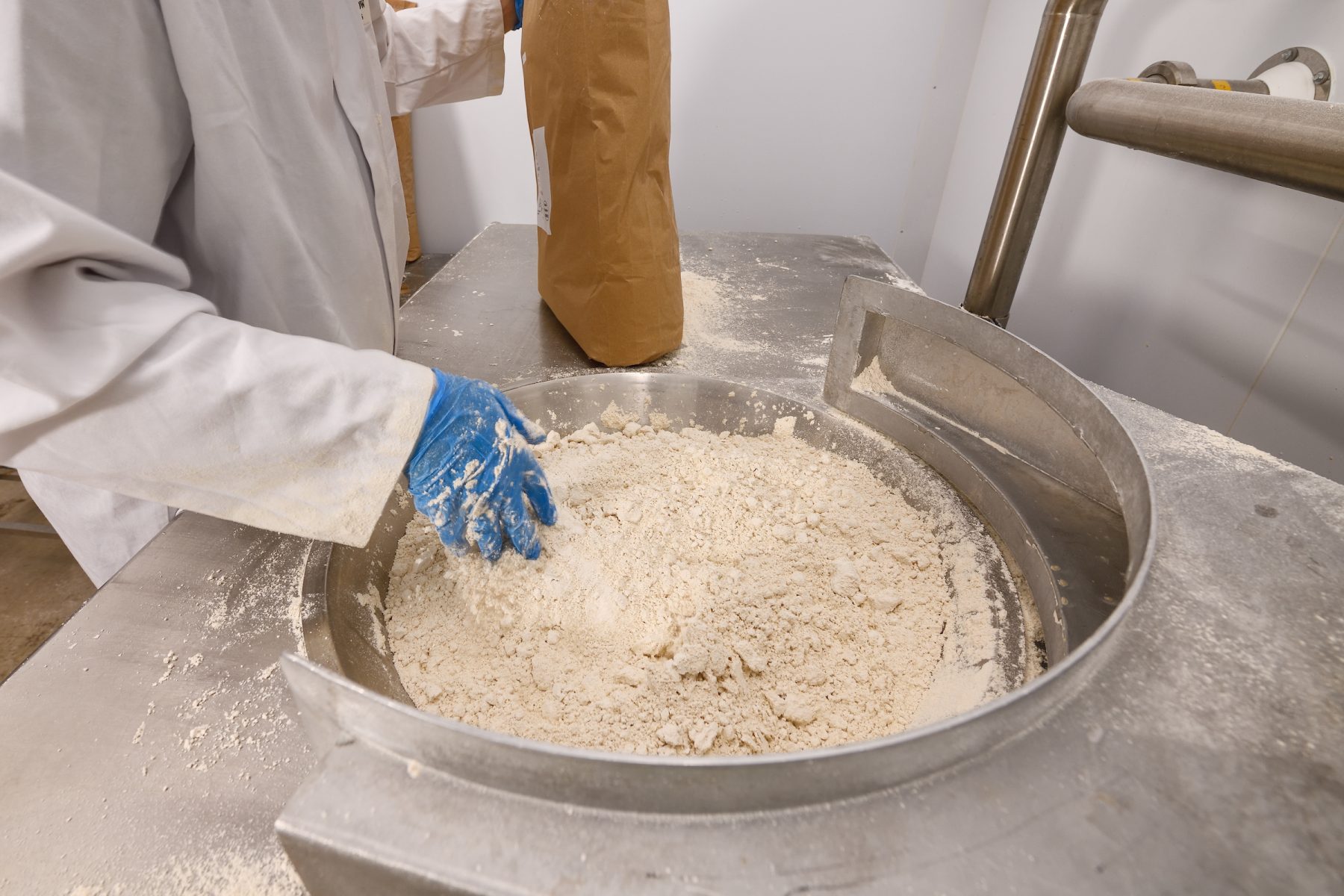#WorldVeganMonth – Vegan Growth At Meadow

Both World Vegan Day and World Vegan Month are just around the corner, with the events taking place on 1st November and throughout the rest of the month respectively. At Meadow, the plant-based market is something we first announced we were expanding into in 2022, and have since enjoyed supplying our customers with a range of dairy alternatives that we hear their consumers really love.
The advent of plant-based alternatives has meant the switch to veganism is now a far more accessible and tempting prospect for many in the UK. Therefore, supermarkets now stock a wide range of these products, and the vegetarian and vegan options on restaurant menus have increased rapidly.
As you can imagine, this is something our NPD team keep a keen eye on at Meadow. With veganism on the rise, in this blog we explore what World Vegan Month is, what it means to the consumer, and what changes we are seeing to diets here in the UK, as well as our products here at Meadow.
WHAT IS WORLD VEGAN MONTH?
The Vegan Society was born in 1944. 50 years later in 1994, the society decided to mark its birthday by holding the first World Vegan Day in the November of that year. In the years to come, the awareness day was extended to a week and then for the entire month to further boost the public’s understanding of plant-based diets.
The aim of the event has always been to promote veganism as a lifestyle by encouraging people to try cutting out animal products for the month to help reduce their consumption in the long term. World Vegan Month also promotes the health benefits that an animal-free diet can bring, whilst highlighting some of the sustainable practices of plant-based production in the food industry.
With sustainability at the heart of everything we do here at Meadow, we’re always keen to hone and improve our policies and practices, be that in traditional ingredients production or in our segregated dairy alternative facility in Chester.
VEGANISM’S RISE IN THE UK
Over the last decade, there has been a huge increase in the number of plant-based products and food ranges available. This greater variety on offer certainly seems to be helping more people make the choice to go vegan.
According to research by Ipsos Mori and The Vegan Society, the number of vegans in the UK by 2019 was around 600,000 compared to just 150,000 in 2014, a huge jump in just five years. The rise in this number is further highlighted by the fact that this year, the Veganuary campaign had 629,000 people signing up, which is a dramatic increase from the 3,300 who took part back in 2014.
Ipsos also found that 3% of the world’s population was vegan in 2018 and this is surely a figure that is only set to grow as the decade continues.
In 2021, Google searches revealed just how popular plant-based foods have become as the search term “vegan food near me” experienced a 5000% increase in 2021.
EXPANDING PLANT-BASED RANGES
As food technology improves, the range of choices on offer for vegans will continue to increase and according to Bloomberg, the global plant-based food market is set to reach $162 billion by the end of the decade and is already valued at $44.2 billion.
This January, alone, there were more than 770 new vegan products launched by companies such as McDonalds, Cadbury, and Lindt to coincide with the increasingly popular Veganuary.
As animal-free food has continued to improve in terms of flavour and taste, the room for scrutiny has increased, so it’s important that manufacturers of both initial ingredients (such as ourselves) and end products continue to develop and innovate to create products with rich and satisfying tastes and equally important – textures. At Meadow, our plant-based ingredients are primarily created with a signature oat and coconut blend that creates an alternative to dairy that doesn’t compromise the palate of a product.
meadow’s plant-based products
Understanding the increasing consumer demand for alternatives to traditional dairy and meat produce, we invested £4 million into our segregated plant-based production facility at our flagship Chester site so that we could produce alternative plant-based milks, yogurts, custard and the country’s only vegan sour cream.
One of our first and popular products is our plant-based alternative yogurt, ‘YOAT’ which is available in an exciting array of flavours from natural to peach flavour. We’ve developed these products to ensure that taste and texture are not far removed from that of traditional dairy products.
Our Meadow Inclusions division also supplies a number of plant-based inclusions to the foodservice and grocery sectors, including old favourites such as honeycomb and sugar strands, plus our original multi-flavour ‘fudj’ offering.
Our plant-based inclusions product portfolio includes:
Honeycomb
Sugar Strands
Popping Candy
Pretzels
Flavoured and Coloured Fudj
Flavoured and Coloured Sugars
Biscuit and Cereal Options
These toppings can be added to all manner of sweet treats to offer a more indulgent product to vegetarian and vegan consumers.
If you would like to discover more about Meadow and sample our ingredients, you can do so by contacting our customer service team. Or keep up to date on the latest industry and company news on our Twitter and LinkedIn.
